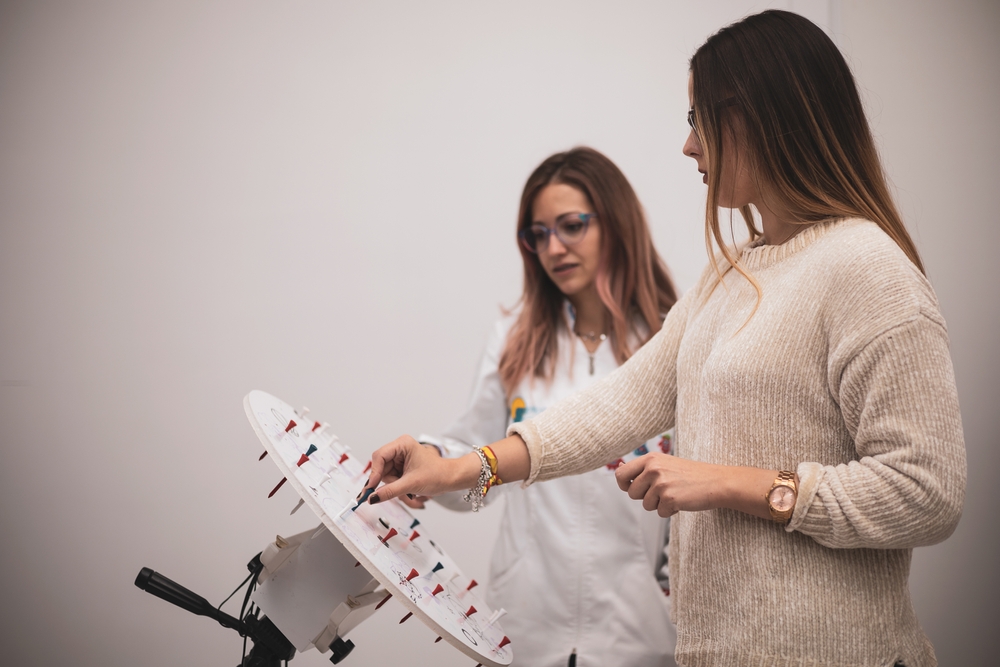
Vision therapy is a specialized form of therapy designed to improve and enhance visual skills and processing. It is commonly used to treat a wide range of eye conditions and learning challenges, helping individuals of all ages improve their visual abilities and overall quality of life. By understanding the importance of consistent and frequent vision therapy, you can take control of your visual health and unlock your full potential.
What is Vision Therapy?
Vision therapy is a non-invasive treatment approach that aims to improve and enhance visual skills and processing. It involves a series of customized eye exercises and activities that are designed to address specific vision problems. These exercises are performed under the guidance and supervision of a trained optometrist or vision therapist.
While vision therapy is often associated with children who have learning difficulties, it can benefit individuals of all ages. Whether you are struggling with reading, sports performance, or even day-to-day activities, vision therapy can help improve your visual abilities and overall quality of life.
Common Eye Conditions and Learning Challenges Treated with Vision Therapy
Vision therapy can effectively treat a wide range of eye conditions and learning challenges. Some common conditions include:
- Strabismus: Strabismus, also known as crossed or misaligned eyes, occurs when the eyes do not align properly.
- Amblyopia: Amblyopia, commonly referred to as lazy eye, is a condition where one eye has reduced vision.
- Convergence insufficiency: Convergence insufficiency is a condition where the eyes have difficulty working together when focusing on nearby objects.
- Visual processing disorders: Visual processing disorders affect how the brain interprets and processes visual information.
By addressing these and other eye conditions and learning challenges with vision therapy, individuals can experience significant improvements in their visual function and overall quality of life.
How Vision Therapy Works
Vision therapy works by engaging the visual system in a series of targeted exercises and activities. These exercises are designed to strengthen and enhance specific visual skills, such as eye coordination, focusing abilities, and visual processing.
During vision therapy sessions, an optometrist will guide you through a variety of exercises tailored to your specific needs. These exercises may involve using specialized lenses, prisms, or other therapeutic tools to challenge and improve your visual abilities.
The duration of vision therapy varies depending on the individual and their specific visual needs. Some individuals may require several months of therapy, while others may need longer treatment periods. Regular practice and commitment to the prescribed exercises and activities outside of therapy sessions are crucial for achieving optimal results.
The Importance of Frequency in Vision Therapy
One of the key factors that contribute to the success of vision therapy is the frequency of treatment. Consistency and regularity are essential for making progress and achieving optimal results.
Vision therapy exercises and activities are designed to create neural pathways in the brain that support improved visual skills. These pathways are strengthened and reinforced through repeated practice. By consistently engaging in vision therapy exercises, you are training your brain to develop and maintain the desired visual abilities.
It is important to follow the recommended treatment schedule provided by your optometrist. Skipping or postponing sessions can impede progress and prolong the duration of therapy.
Creating a Personalized Treatment Plan
Consulting with an optometrist is crucial in creating a personalized treatment plan for vision therapy. A comprehensive eye examination will be conducted to assess your visual function and identify any underlying eye conditions or learning challenges.
Based on the results of the examination, the optometrist will develop a tailored vision therapy program that addresses your specific needs. They will determine the frequency of sessions, the duration of treatment, and the specific exercises and activities that will be most beneficial for you.
Regular follow-up appointments will be scheduled to monitor your progress and make any necessary adjustments to the treatment plan. The optometrist will provide guidance and support throughout the entire vision therapy process, ensuring that you are on track towards achieving your visual goals.
Schedule a Consultation with Zenith Vision Development Center Today
Vision therapy is a highly effective treatment approach for improving visual skills and processing. It can address a wide range of eye conditions and learning challenges, helping individuals of all ages unlock their full visual potential. However, for vision therapy to be successful, consistency and frequency are key.
By committing to regular and frequent vision therapy sessions, you are giving yourself the best chance for achieving optimal results. Consistent practice and repetition allow the brain to develop and reinforce the desired visual skills.
Take control of your visual health and embark on the journey of vision therapy. With commitment, dedication, and the guidance of Dr. Nordwall, you can make significant improvements in your visual abilities and ultimately enhance your overall quality of life.
Schedule your consultation with Dr. Nordwall to start your personalized vision therapy journey towards optimal visual health, visit Zenith Vision Development Center at our office in Duluth, Minnesota. Please call (218) 249-0685 to book an appointment today.








